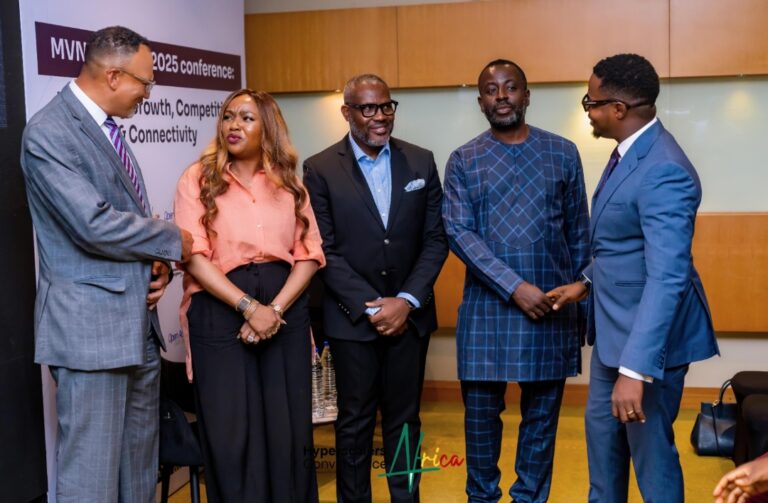The MVNO Nigeria 2025 Conference convened telecom policymakers, mobile operators, digital infrastructure leaders, and investors in Lagos for a landmark dialogue on Nigeria’s connectivity future. Held under the theme “Unlocking Growth, Competition and Connectivity,” the event marked a significant step toward establishing a thriving Mobile Virtual Network Operator (MVNO) ecosystem in Africa’s largest telecom market.
MVNOs: Catalysts for National Inclusion and Economic Growth
Opening the conference, Tony Izuagbe Emoekpere, President of the Association of Telecommunications Companies of Nigeria (ATCON), highlighted MVNOs as pivotal drivers of digital inclusion, economic resilience, and service diversification.
“MVNOs should be seen not as threats but as partners in progress,” Emoekpere asserted. “With strong regulatory support and ecosystem collaboration, MVNOs can broaden access and affordability for millions.” He called for robust enforcement of pro-MVNO policies, urging traditional operators to embrace a platform mindset that supports innovative models reaching rural communities and lowering data costs.
Strategic Execution Beyond Licensing
Dr. Ayobami Oladejo, Managing Director of Digipractice, cautioned that mere licensing does not guarantee success, citing South Africa’s slow MVNO adoption as a warning. He urged MVNOs to operate like startups, emphasizing agility, collaboration, and targeted market focus.
Dr. Oladejo outlined five strategic imperatives for MVNO success: rapid market entry, niche targeting, strategic partnerships, cloud-enabled operations, and clear commercial frameworks. He stressed the importance of enforceable wholesale agreements and backend support through Mobile Virtual Network Enablers (MVNEs).
Creating New Demand with Digital Innovation
Dr. Ayotunde Coker, CEO of Open Access Data Centres, encouraged MVNOs to think beyond competing for existing subscribers. He proposed adopting fintech-inspired models—trusted, simple, and deeply embedded in users’ daily lives.
Advocating “sachet-style” pricing and digitally native, lightweight offerings, Dr. Coker emphasized unlocking new demand among underserved segments.
Harnessing Digital Empathy and Hyper-Segmentation
In a forward-looking keynote, Hamish White, CEO of Mobilise, spotlighted Nigeria’s youthful population, growing digital appetite, and vast underserved markets as fertile ground for MVNO innovation.
“MVNOs are more than telecom disruptors—they are platforms for national development,” White said. He urged operators to develop hyper-segmented, digital-first services tailored for gig workers, SMEs, and rural users, incorporating localized content and cross-sector partnerships.
Bridging Policy and Market Reality
Since launching its MVNO framework in 2022, Nigeria has licensed 43 operators. Yet, speakers at the conference underscored the gap between regulatory intent and actual market progress.
“Licenses don’t launch businesses—value does,” reminded Tony Emoekpere.
Key focus areas included transparent wholesale pricing, backend enablers like MVNEs, infrastructure sharing, and protection against predatory practices. The conference also noted rising interest from fintechs, retailers, and logistics firms leveraging MVNO models to deepen customer engagement.
Panel Insights: Speed, Collaboration, and Differentiation
A lively panel session reinforced the urgency of execution, innovation, and ecosystem collaboration:
-
Dr. Ayobami Oladejo emphasized speed: “In the digital market, agility beats scale.”
-
Hamish White urged, “MVNOs win when they stop competing and start complementing the ecosystem.”
-
Teniola Stuffman, CEO of Lebara Nigeria, called for action: “We didn’t get licenses to sit and sulk—we came to disrupt.”
-
Satya Mekala, CEO of Wireless Technology Labs, warned against narrow ambitions: “Don’t fight for crumbs—go for the cashews.”
-
Olusola Teniola, Director at ipNX, advised: “Don’t wrestle the gorilla—find your lane and own it.”
Building Nigeria’s Telecom Future Through Collaboration
“It’s not just about connectivity,” concluded the panelists. “Collaboration, differentiation, and vision will shape Nigeria’s telecom landscape.”
Key Takeaways and Recommendations
-
For MVNOs: Operate like lean startups focused on niche, underserved markets. Prioritize collaboration with Mobile Network Operators (MNOs), build user trust, and adopt micro-transaction models that resonate with consumers’ realities.
-
For MNOs: View MVNOs as revenue partners, monetize unused capacity through fair wholesale pricing, and enable backend support to foster innovation and diversity.
-
For Regulators: Move beyond licensing to enforce pro-competition policies—ensuring transparent pricing, supporting MVNEs, promoting infrastructure sharing, and safeguarding MVNOs from predatory behavior.
-
For Investors: Provide patient capital supporting sustainable, differentiated MVNO business models that deliver long-term local value.
The MVNO Nigeria 2025 Conference spotlighted a shared vision: MVNOs are not just a telecom trend but a national strategy for accelerating connectivity, fostering innovation, and driving inclusive economic growth.
The future demands bold execution, multi-sector collaboration, and regulatory courage. Nigeria now holds the keys to a dynamic MVNO ecosystem—if stakeholders act decisively.

